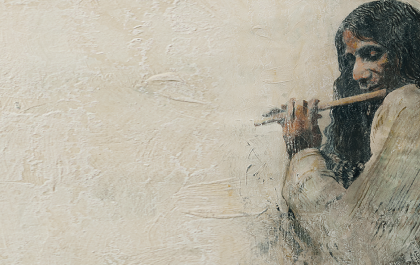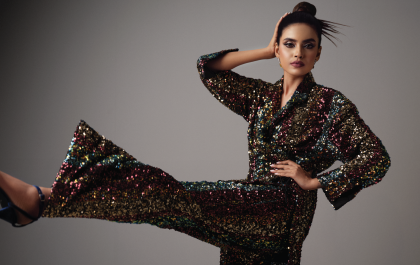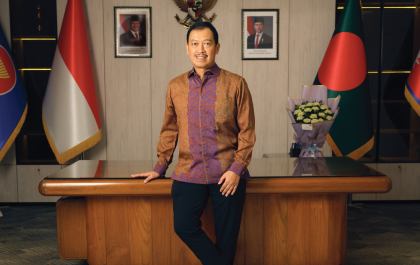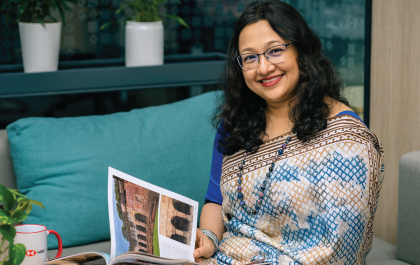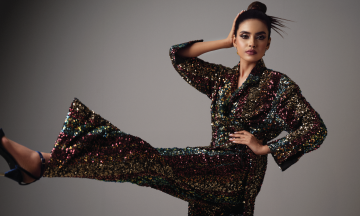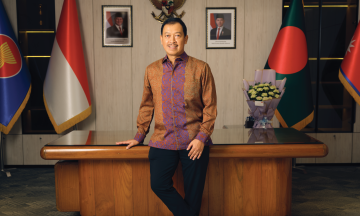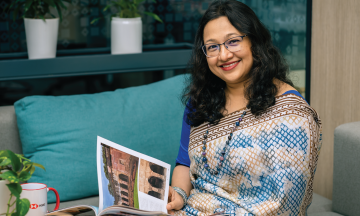A review of the highly anticipated It Ends With Us
By Ayman Anika
“It stops here. With me and you. It ends with us.” These words from It Ends with Us (2016) have stayed with me ever since I read the book. The words resonate on a personal level – growing up, I witnessed domestic violence within my family, and that line echoed a silent promise I made to myself: to break the cycle. So, when I heard the novel was being adapted into a film, I naturally felt excited.
As someone who isn’t a big fan of Colleen Hoover’s overly romanticized plots, I wondered how the movie would handle the delicate balance between the dark themes of domestic violence and the lighter elements of romance.
Thankfully, after watching the film, I was relieved. Director Justin Baldoni managed to capture the emotional depth of the novel while trimming down some of its more sugar-coated aspects. The film focuses on the rawness of the characters’ trauma without over-glorifying the romance –and for that, I’m grateful. It felt like the adaptation respected the gravity of the subject matter without getting lost in clichés.
For those unfamiliar with the story, It Ends with Us follows 23-year-old Lily Blossom Bloom (played by Blake Lively) as she tries to rebuild her life after a tumultuous childhood marked by domestic abuse. She moves to Boston, where she fulfils her dream of opening a florist shop.
Soon after, she meets Ryle Kincaid (Justin Baldoni), a successful neurosurgeon who seems like the perfect match at first glance. But as their relationship deepens, Lily is confronted with the disturbing reality that Ryle’s behavior mirrors the very abuse she witnessed growing up. Simultaneously, her old flame, Atlas Corrigan (Brandon Sklenar), re-enters her life, complicating her emotions and choices. The story, on the surface, sounds like your typical love triangle, but it’s so much more. It’s about generational trauma, self-worth, and the strength it takes to break free from toxic cycles.
Watching the film, I was struck by Blake Lively’s portrayal of Lily. I’ve always thought of her as a capable actress, but here, she truly shines. She embodies Lily’s vulnerability and strength with such authenticity that I couldn’t help but empathize with her every step of the way. Lively’s performance is raw, unpolished, and heartbreaking. She brings to life the quiet struggles of a woman caught between love and fear, and every time she falters or fights back, you feel it in your gut.
Then there’s Baldoni, pulling double duty as both the director and the lead actor. His take on Ryle Kincaid is nuanced and complex. While Ryle initially comes o as charming and almost too perfect, the subtle shifts in his demeanor – his short temper, controlling tendencies – are chilling. There’s a moment in the film when Ryle’s anger flares, and the look of disbelief on Lily’s face, followed by the dawning horror that she’s trapped in a pattern she thought she’d escaped, is one of the most powerful scenes in the film.
The flashbacks to Lily’s teenage years, when she first fell in love with Atlas, provide context to her complex feelings. While the book leans heavily into the romantic aspects of their relationship, the film takes a more balanced approach.
Brandon Sklenar’s portrayal of Atlas o ers a sense of stability amidst the chaos, but it’s clear that his presence is more than just a romantic subplot – he represents Lily’s opportunity to break free.
Visually, the film is beautiful. Baldoni and cinematographer Barry Peterson use warm, golden tones to contrast Lily’s dark emotional journey. Lily’s flower shop, which looks like it was plucked straight from a dream, serves as a metaphor for her growth and desire for beauty in a world filled with pain. Yet, as lovely as the aesthetics are, the film doesn’t shy away from the ugliness of abuse. The scenes of domestic violence are carefully handled – intense without being exploitative, suggesting just enough to make you feel the impact without overwhelming the viewer.
Of course, the film isn’t without its flaws. Some of the secondary characters, like Lily’s mother (Amy Morton) and Ryle’s sister Allysa (Jenny Slate), felt a bit underdeveloped. Slate, known for her comedic timing, does bring some much-needed levity to the film, but her character could have been explored further.
Similarly, I wish we had more scenes with Atlas. His role in Lily’s life is pivotal, and while Sklenar does an admirable job, the film focuses so much on Ryle that Atlas feels like an afterthought at times.
In the end, though, It Ends with Us is a film that left a lasting impression on me. It handles the subject of domestic violence with care – without trivializing it for the sake of romance. As Lily says in the book, “As hard as this choice is, we break the pattern before the pattern breaks us.” That message, of taking control and choosing to end the cycle, is one that needs to be heard more often.
The film may not be perfect, but it’s an important step in the right direction, reminding us that sometimes, the hardest thing is knowing when to walk away – when to choose ourselves.





